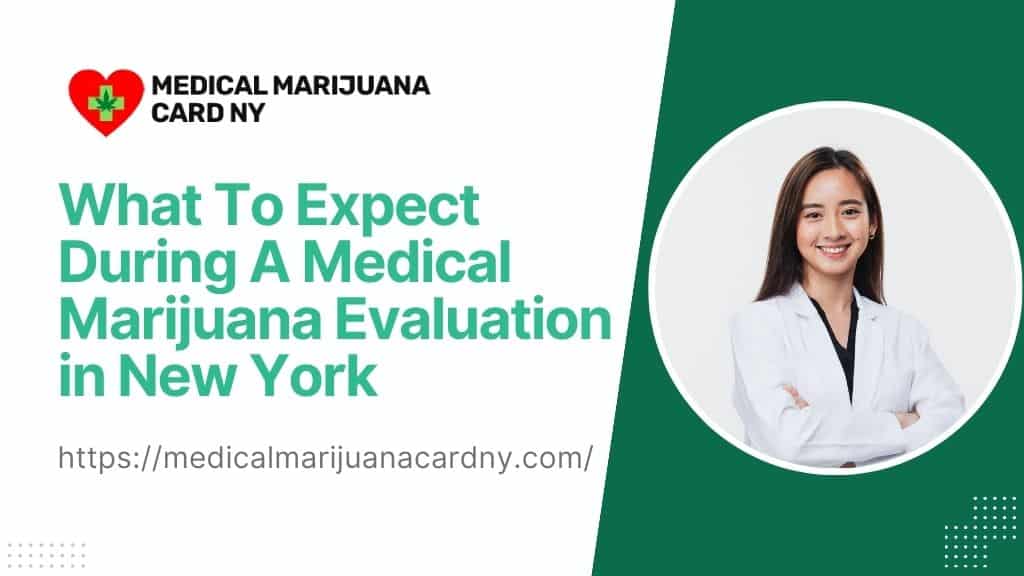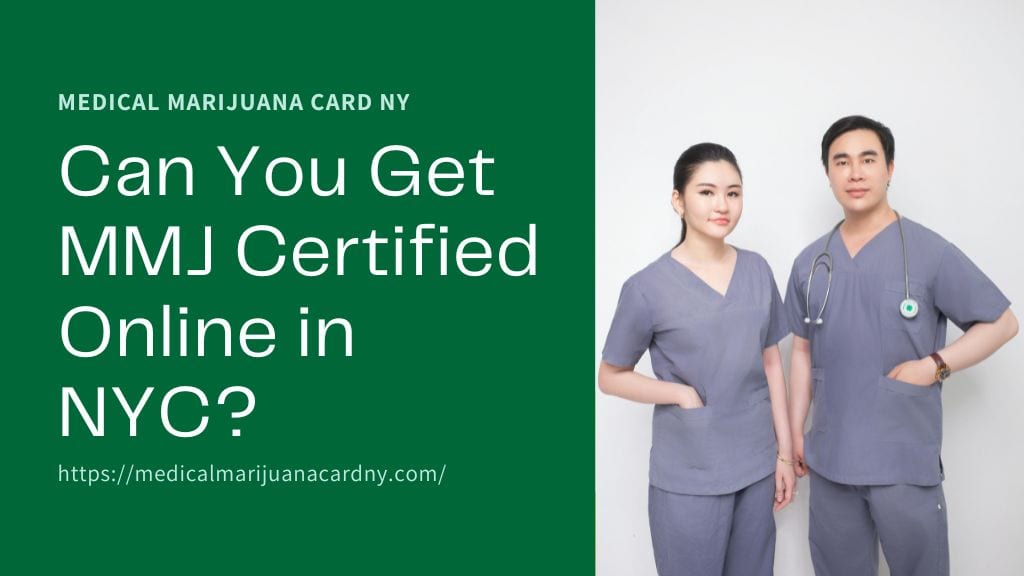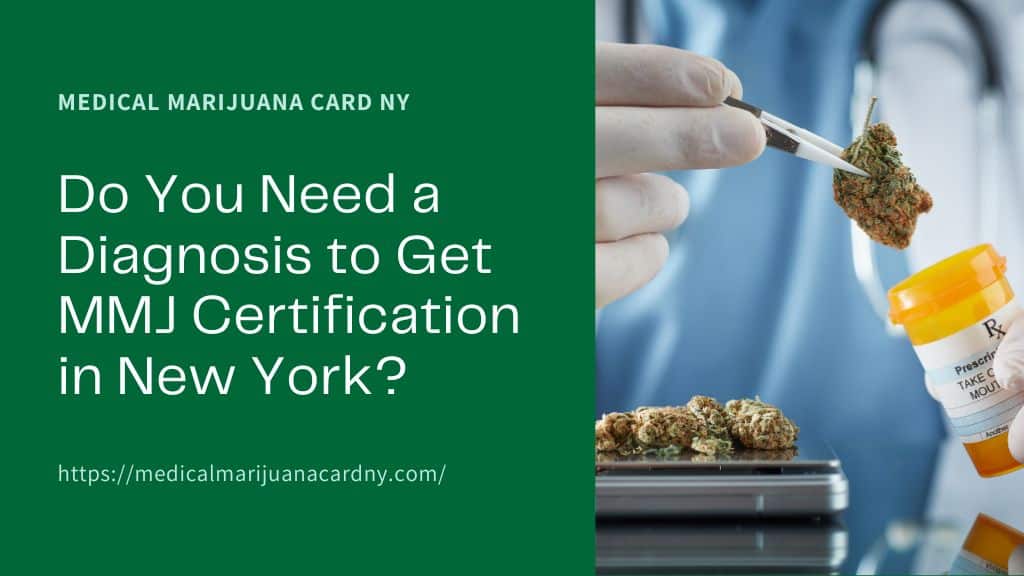In New York, the medical marijuana evaluation process reflects a rapidly evolving cannabis landscape. As of 2023, the state has seen a shift in its medical marijuana program with sales reaching approximately $150 million, despite a decrease in patient numbers. This change mirrors global trends, where the cannabis market is projected to grow significantly.
With technological advancements and new product introductions, understanding what to expect in a medical marijuana evaluation is crucial for patients in New York. This article delves into these changes and their implications for medical marijuana evaluations, offering insights into the current state and future prospects of cannabis use in New York.
Table of Contents
ToggleIntroduction to Medical Marijuana Evaluations in New York
What Is a Medical Marijuana Evaluation?
A medical marijuana evaluation is a critical step in obtaining medical marijuana certification. It involves a consultation with a healthcare provider registered in the New York State Medical Marijuana Program. During the evaluation, the provider assesses the patient’s medical history, current health condition, and the suitability of medical marijuana as a treatment option. The evaluation aims to determine whether the patient’s condition could benefit from medical marijuana and to establish the appropriate form and dosage.
How Has New York’s Approach to Medical Marijuana Changed Recently?
New York’s approach to medical marijuana has undergone significant changes recently, particularly with the implementation of the Marijuana Regulation and Taxation Act. This act has created a comprehensive regulatory structure for medical marijuana, focusing on public health, safety, and social equity. The state has streamlined the process for obtaining medical marijuana, making it more accessible to patients in need. The emphasis is now on ensuring that medical marijuana is used safely and effectively for therapeutic purposes, under the guidance of certified healthcare providers.
Preparing for Your Evaluation
What Should You Know Before Scheduling a Medical Marijuana Evaluation in New York?
Before scheduling a medical marijuana evaluation in New York, patients should be aware of the state’s regulations and the process involved. They should ensure that their condition is one that could benefit from medical marijuana treatment. Patients should also gather their medical records and be prepared to discuss their medical history and current symptoms with the healthcare provider. Understanding the legal framework and the role of the healthcare provider in the certification process is crucial.
How Can Patients Prepare for a Medical Marijuana Evaluation?
To prepare for a medical marijuana evaluation, patients should:
- Collect Medical Records: Gather all relevant medical documentation, including records of diagnosis and treatments.
- List Current Symptoms: Be ready to discuss current symptoms and how they affect daily life.
- Research Medical Marijuana: Have a basic understanding of medical marijuana and its potential benefits and risks.
- Prepare Questions: List any questions or concerns about using medical marijuana for treatment.
- Choose a Registered Provider: Ensure the healthcare provider is registered with the New York State Medical Marijuana Program.
- Understand the Legal Aspects: Be aware of New York’s legal regulations regarding medical marijuana use.
By being well-prepared, patients can ensure that their evaluation is thorough and that they receive the most appropriate guidance regarding medical marijuana treatment.
The Evaluation Process
What Happens During a Medical Marijuana Evaluation in New York?
During a medical marijuana evaluation in New York, a registered healthcare provider assesses a patient’s suitability for medical marijuana use. This evaluation involves reviewing the patient’s medical history, current health condition, and symptoms.
The provider discusses the potential benefits and risks of using medical marijuana for the patient’s specific condition. If deemed appropriate, the provider will issue a medical marijuana certification, specifying the recommended form and dosage of cannabis.
Who Conducts Medical Marijuana Evaluations in New York?
Medical marijuana evaluations in New York are conducted by healthcare providers who are registered with the New York State Medical Marijuana Program. These providers have undergone specific training to understand the therapeutic uses of cannabis and are authorized to certify patients for medical marijuana use. They include physicians, nurse practitioners, and physician assistants who are licensed and in good standing in the state of New York.
Certification Instead of Cards
Why Are MMJ Cards No Longer Issued in New York?
MMJ cards are no longer issued in New York as part of the state’s efforts to streamline the process for patients to access medical marijuana. The shift towards issuing medical marijuana certifications instead of MMJ cards simplifies the process, making it more efficient and accessible. This change reflects New York’s commitment to ensuring that patients with legitimate medical needs can easily obtain medical marijuana without unnecessary bureaucratic hurdles.
What Is the MMJ Certification and How Does It Differ from a Card?
The MMJ certification in New York is an official document issued by a registered healthcare provider that certifies a patient’s eligibility to purchase and use medical marijuana for their condition. Unlike the traditional MMJ card, the certification directly states the patient’s approved form and dosage of medical marijuana.
This certification is part of New York’s streamlined approach to medical marijuana access, focusing on the therapeutic aspect and reducing administrative processes. The certification process ensures that medical marijuana is used safely and effectively under the guidance of a healthcare professional.
Eligibility and Requirements
Without Qualifying Conditions, Who is Eligible for MMJ in New York?
In New York, the eligibility for medical marijuana (MMJ) is no longer strictly defined by a list of qualifying conditions. Instead, healthcare providers have the discretion to recommend medical marijuana for patients whose symptoms and conditions they believe can be effectively managed or treated with cannabis. This approach allows for a more personalized and flexible use of medical marijuana, catering to a broader range of patients who may benefit from its therapeutic properties.
What Documentation is Required for a Medical Marijuana Evaluation?
For a medical marijuana evaluation in New York, patients are required to provide comprehensive medical documentation. This includes their medical history, details of their current health condition, and any treatments they have undergone. Patients should also bring identification documents and any relevant medical records that can support their case for medical marijuana use. This documentation helps healthcare providers make informed decisions regarding the suitability of medical marijuana for the patient’s specific health needs.
After the Evaluation
What Steps Follow After a Successful Medical Marijuana Evaluation?
After a successful medical marijuana evaluation in New York, the healthcare provider will issue a medical marijuana certification. This certification allows the patient to legally purchase and use medical marijuana from registered dispensaries. Patients are then advised to register with the New York State Medical Marijuana Program, where they will receive guidance on how to access medical marijuana products that align with their certification.
How Can Patients Obtain Medical Marijuana in New York Post-Evaluation?
Once patients have received their medical marijuana certification in New York, they can obtain medical marijuana from registered dispensaries across the state. These dispensaries offer a range of cannabis products, including oils, tinctures, capsules, and more, tailored to meet the specific needs outlined in the patient’s certification. Patients should consult with dispensary staff to understand the best products and usage methods for their condition. The entire process is regulated to ensure safety, quality, and compliance with state laws.
Legal and Ethical Considerations
What Legal Protections Do MMJ Patients Have in New York?
In New York, medical marijuana (MMJ) patients are protected under the Marijuana Regulation and Taxation Act. This act ensures that patients who are legally certified to use medical marijuana are not subject to criminal prosecution for possessing or using cannabis as per their certification. The law also safeguards patient privacy and prohibits discrimination against MMJ patients in employment, housing, and child custody cases. Additionally, the state has established a regulatory framework to ensure that medical marijuana products are safe, tested, and accurately labeled.
How Does New York Ensure Ethical Practices in Medical Marijuana Evaluations?
New York ensures ethical practices in medical marijuana evaluations through stringent regulations and oversight. Healthcare providers conducting these evaluations are required to be registered with the New York State Medical Marijuana Program and must adhere to established medical standards. The state monitors these providers to ensure they conduct evaluations ethically and responsibly, focusing on the patient’s health and safety. The Office of Cannabis Management oversees these regulations, ensuring compliance and addressing any unethical practices.
Navigating Challenges and Concerns
What Are Common Concerns Patients Have About MMJ Evaluations and How Can They Be Addressed?
Common concerns among patients regarding MMJ evaluations include privacy, the legitimacy of the evaluation process, and the fear of legal repercussions. These concerns can be addressed by ensuring that evaluations are conducted by registered and reputable healthcare providers. New York’s regulatory framework ensures patient confidentiality and the legitimacy of the evaluation process. Patients are also protected under state law, which allows for legal use of medical marijuana based on a certified healthcare provider’s recommendation.
How to Navigate the Changing Landscape of Medical Marijuana in New York?
Navigating the changing landscape of medical marijuana in New York involves staying informed about current laws and regulations. Patients should consult with registered healthcare providers to understand their eligibility and the certification process. It’s also important to be aware of the legal protections and rights as an MMJ patient. Staying updated with information from the Office of Cannabis Management and other reliable sources can help patients and caregivers make informed decisions about medical marijuana use.
Conclusion
During a medical marijuana evaluation in New York, patients can expect a thorough and professional assessment by a registered healthcare provider. This evaluation focuses on reviewing the patient’s medical history, current health condition, and the potential benefits of medical marijuana for their specific symptoms.
The healthcare provider will discuss the risks and benefits of medical marijuana use, ensuring the patient is well-informed. If deemed suitable, the provider will issue a medical marijuana certification, tailored to the patient’s needs. This process is conducted with utmost respect for patient privacy and adherence to New York’s medical marijuana regulations, ensuring a safe and supportive environment for patients seeking relief through medical marijuana.





